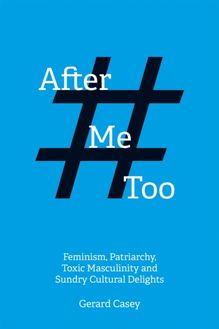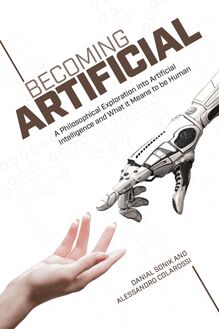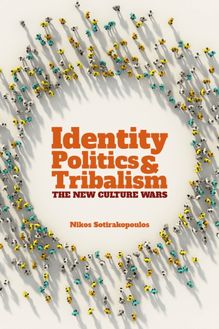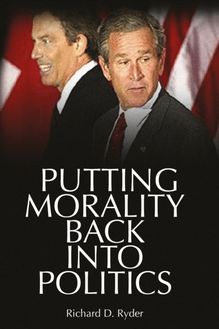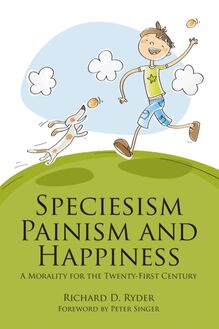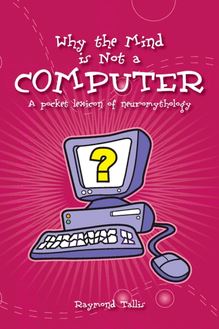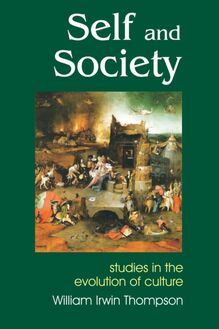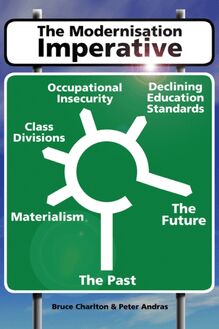-
 Univers
Univers
-
 Ebooks
Ebooks
-
 Livres audio
Livres audio
-
 Presse
Presse
-
 Podcasts
Podcasts
-
 BD
BD
-
 Documents
Documents
-
- Cours
- Révisions
- Ressources pédagogiques
- Sciences de l’éducation
- Manuels scolaires
- Langues
- Travaux de classe
- Annales de BEP
- Etudes supérieures
- Maternelle et primaire
- Fiches de lecture
- Orientation scolaire
- Méthodologie
- Corrigés de devoir
- Annales d’examens et concours
- Annales du bac
- Annales du brevet
- Rapports de stage
La lecture à portée de main
Vous pourrez modifier la taille du texte de cet ouvrage
Découvre YouScribe en t'inscrivant gratuitement
Je m'inscrisDécouvre YouScribe en t'inscrivant gratuitement
Je m'inscrisEn savoir plus
Vous pourrez modifier la taille du texte de cet ouvrage
En savoir plus

Description
Sujets
Informations
| Publié par | Andrews UK |
| Date de parution | 02 décembre 2016 |
| Nombre de lectures | 0 |
| EAN13 | 9781845405922 |
| Langue | English |
Informations légales : prix de location à la page 0,0324€. Cette information est donnée uniquement à titre indicatif conformément à la législation en vigueur.
Extrait
THE ENEMIES OF PROGRESS
The Dangers of Sustainability
Austin Williams
First published in 2008 by
Imprint Academic, PO Box 200, Exeter EX5 5YX, UK
www.imprint-academic.com
Digital edition converted and distributed by
Andrews UK Limited
www.andrewsuk.com
© Copyright 2016 Austin Williams
The right of Author Name to be identified as the author of this work has been asserted in accordance with the Copyright, Designs and Patents Act 1998.
The moral rights of the author have been asserted.No part of any contribution may be reproduced in any form without permission, except for the quotation of brief passages in criticism and discussion.
The views and opinions expressed herein belong to the author and do not necessarily reflect those of Imprint Academic or Andrews UK Limited.
For Martha
for whom the future should be a world of possibilities.
Thanks to Claire in particular, who has been a continual source of ideas, support, criticism and inspiration.
I am indebted to the Future Cities Project members and supporters including Martin Earnshaw, Alastair Donald, Karl Sharro, Dave Clements, Jane Sanderman, Pete Smith, Niall Crowley, Elisabetta Gasparoni-Abraham and Martyn Perks.
Also, Shirley Lawes, Dennis Hayes, Daniel Ben-Ami, Jim Butcher, Alex Standish, Alan Farlie, Richard JWilliams and Debby Kuypers. Also thanks to the team at spiked.
I owe a real debt of gratitude too to other friends, colleagues and associates for their challenging and illuminating political ideas over the years.
Introduction
In 1933, Chicago celebrated its centenary with an International Exposition entitled ‘A Century of Progress’. It was held to commend the ‘progress of civilisation’ [1] that had turned a town of 350 people on the banks of Lake Michigan into one of the leading industrial powerhouses of the world. As an expression of the city’s futuristic ambitions, at the opening ceremony on 2 May 1933 rays of light from the third brightest star, Arcturus were converted into electricity in order to power the Exposition’s illuminations (the organisers calculating that the light from Arcturus would have begun its journey at the time of Chicago’s previous World’s Fair in 1893).
The 1933 Exposition’s inaugural statement explained that it would ‘attempt to demonstrate to an international audience the nature and significance of scientific discoveries, the methods of achieving them, and the changes which their application has wrought in industry and in living conditions.’ [2] Even in the depths of the Great Depression, forty million people visited (six times the number that visited the UK’s Millennium Dome in 2000) with one visitor reporting ‘how much fun it is just to be alive today.’ [3] Aspects of the 1933 Exposition were undoubtedly guided by a politically motivated drive for social unity, but regardless of the political contrivances, primarily it proclaimed the future as a good, positive place to be. A few months earlier, Roosevelt had announced: ‘when there is no vision, the people perish’. [4] Even at a time of great political uncertainty, such was the confident vision of progress that ‘bold, persistent experimentation’ [5] was proposed alongside a New Deal.
That was then. Whereas once we looked to the future with anticipation, today we can only tremble with trepidation. The future, today, is regularly viewed with foreboding; experimentation is frequently discouraged as unnecessarily risky, and progress itself is presented as a fallacy. [6] Man has gone from being a solution, to becoming seen as the problem. By definition this has completely undermined the concept of human progress. In recent years, ‘progress’ has been reduced, at best, to a relativistic ‘paradigm’; [7] at worst, it is seen as a contradiction in terms, where social problems are deemed to be ‘resistant to knowledge and its answers’. [8]
And so it came to pass that ever since the 1992 UN Conference on Environment and Development (the Rio Summit) promoted ‘“sustainable development” as a new name for progress’ [9] it has became acceptable to regularly use the prefix ‘so-called’ when describing social advancement, development and progress. In effect, the very benefits of progress have been called into question. This book seeks to redress the balance.
I argue that sustainability is an insidiously dangerous concept at odds with progress and I hope to present a critical exploration of its all-pervasive influence on society. My proposition is that sustainability, manifested in several guises, represents a pernicious and corrosive doctrine that has survived primarily because there seems to be no alternative to its canon: in effect, its bi-partisan appeal has depressed critical engagement and neutered politics.
Unfortunately, sustainable development, masquerading as progress, is everywhere accepted. Taking just one example, the Royal Commission on Environment and Pollution in London want to make it incumbent on local authorities that they have a central ‘duty to protect and enhance the environment’ [10] identifying four priority themes: ‘sustainable urban transport; sustainable urban management...; sustainable urban construction...; and sustainable urban design’. [11] This book will argue that sustainable development is the enemy of development; that environmentalism is the enemy of humanism; ergo sustainability is the enemy of progress.
***
In his final book, On God: An Uncommon Conversation , Norman Mailer reveals his troubled relationship with progress and a despondency with development. He writes:
If, for example, the flush toilet is an improvement in existence, if the automobile is an improvement, if technological progress is an improvement, then look hard at the price that was paid. It’s not too hard to argue that the gulags, the concentration camps, the atom bomb came out of technological improvement. For the average person in the average developed country, life, if seen in terms of comfort, is better than it was in the middle of the 19 th century, but by the measure of our human development as ethical, spiritual, responsible and creative human beings, it may be worse. [12]
Linking modernism and barbarism sounds, initially, reminiscent of the post-war Frankfurt School writers like Theodor Adorno and Max Horkheimer. They too said that ‘the fallen nature of man cannot be separated from social progress.’ [13] However, their circumstances were very different to today. Adorno et al were coming to terms with the savagery of the Second World War and the concentration camps, and, as such, might be excused a certain emotional attachment that may have clouded their critical judgement. But Mailer’s only excuse - aside from his own imminent mortality - for such a pathetic extrapolation between Thomas Crapper’s flushing mechanism and Auschwitz; between Henry Ford and Hiroshima, is the inescapable anti-progressive zeitgeist of sustainability. Nowadays, everything - even the desire for better personal hygiene, it seems - is seen as potentially harmful rather than patently beneficial. It echoes the precautionary approach of sustainability, which says that where man’s interference in nature is concerned, things are likely to turn out to have negative consequences.
Such is the misanthropic undercurrent in mainstream sustainability that even some radical environmentalists balk at the relentless calls for restraint. In their book Break Through , in which they simply attempt to rebrand miserablism in a more positive light, Ted Nordhaus and Michael Shellenberger are moved to claim that ‘few things today are more offensive to liberal and environmental leaders than the notion of humans creating new realities, political or otherwise. But a certain hubris is always required of people, be they environmentalists or neoconservatives, who wish to change the world.’ [14] But actually in the eyes of mainstream sustainability advocates, hubris is the problem; they think that economic and social development needs to learn a bit of humility. We need, so the tired old story goes, to take care of the environment lest the other pillars of sustainability - the economic and social - fall around our ears.
This sort of melodramatic tragedy is exemplified by Thomas Homer-Dixon’s book The Upside of Down , in which he suggests that modern societies crumble when they over-extend themselves. For those in politics and policy, cautious sustainability is the last hope for a social glue to hold fragmenting, collapsing societies together. Today, with no hot or cold war to guide governmental actions, states are happy to fall back on the tried and tested unifying rhetoric of nations under attack and the war economy, albeit with a green spin.
So it is now common to hear phrases like ‘environmental genocide’, [15] or condemnations of global warming ‘denial’ and perverse demands for rationing. Others allege that even the forests are becoming ‘victims of war’. [16] Always one to exaggerate, UK government minister David Miliband claims that an inability to get to grips with environmental matters ‘could cause more human and financial suffering than the two world wars and the great depression put together.’ [17] Author Jared Diamond is cavalier with the phrase ‘environmental holocaust’ musing about bird species that ‘humans (have) driven into extinction.’ [18] Friends of the Earth are against the war in Iraq, primarily, it seems, because it creates ‘vicious cycles of unsustainability.’ [19] The idiom remains clear: war economics makes us tighten our belts and become more pliant for the common good. The serious tenor of such a moral high-ground is enough to silence debate.
Regardless of the linguistic hyperbole, the mere fact that governments and non-governmental agencies alike are trying to unify society through a c
-
 Univers
Univers
-
 Ebooks
Ebooks
-
 Livres audio
Livres audio
-
 Presse
Presse
-
 Podcasts
Podcasts
-
 BD
BD
-
 Documents
Documents
-
Jeunesse
-
Littérature
-
Ressources professionnelles
-
Santé et bien-être
-
Savoirs
-
Education
-
Loisirs et hobbies
-
Art, musique et cinéma
-
Actualité et débat de société
-
Jeunesse
-
Littérature
-
Ressources professionnelles
-
Santé et bien-être
-
Savoirs
-
Education
-
Loisirs et hobbies
-
Art, musique et cinéma
-
Actualité et débat de société
-
Actualités
-
Lifestyle
-
Presse jeunesse
-
Presse professionnelle
-
Pratique
-
Presse sportive
-
Presse internationale
-
Culture & Médias
-
Action et Aventures
-
Science-fiction et Fantasy
-
Société
-
Jeunesse
-
Littérature
-
Ressources professionnelles
-
Santé et bien-être
-
Savoirs
-
Education
-
Loisirs et hobbies
-
Art, musique et cinéma
-
Actualité et débat de société
- Cours
- Révisions
- Ressources pédagogiques
- Sciences de l’éducation
- Manuels scolaires
- Langues
- Travaux de classe
- Annales de BEP
- Etudes supérieures
- Maternelle et primaire
- Fiches de lecture
- Orientation scolaire
- Méthodologie
- Corrigés de devoir
- Annales d’examens et concours
- Annales du bac
- Annales du brevet
- Rapports de stage
